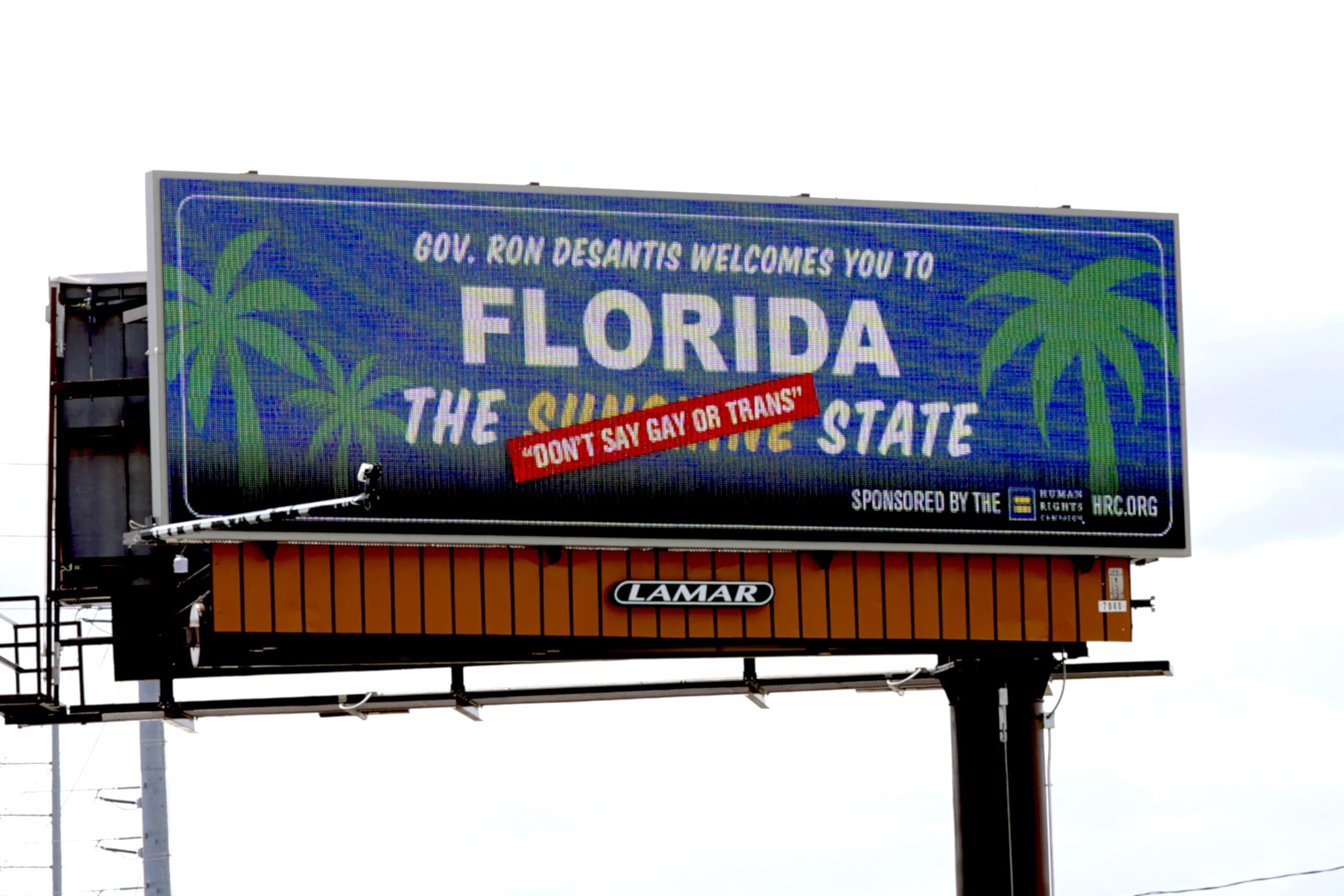Last week, the Miami-Dade school board voted against a proposal to recognize October as LGBTQ2S+ History Month.
On September 7, after a six-hour marathon meeting where the initiative faced stiff opposition, school board members voted 1-8 against having LGBTQ2S+ History Month. The proposal also included an exploration of the “feasibility” of providing resources for 12th-grade social studies teachers to teach American LGBTQ2S+ history. The potential curriculum would include landmark Supreme Court cases such as Obergefell v. Hodges, which recognized same-sex marriage at the federal level, and Bostock v. Clayton County, which affirmed the right of gay and trans employees to be protected from discrimination.
Lucia Baez-Geller, the board member who introduced the proposal, was the sole member to vote in favour of it. LGBTQ2S+ people, parents and civil rights groups gave speeches during the meeting in support of her idea. Their interventions aimed to make students feel less alone, according to Insider. “The marginalization of lesbian, gay, bisexual, transgender people that has been institutionalized to push us to the margins, to strip us of marriage equality—our struggle is real, our struggle is history,” said Michael Rajner, an LGBTQ2S+ rights activist who identified himself as Christian and HIV-positive during the meeting. “They want to strip us from history. ‘Don’t Say Gay’ is why this crowd is here to oppose this. They do not want us to exist. They want us to kill ourselves. They want us to continue to strip protections from us.”
However, dozens of parents and community members opposed Baez-Geller’s proposal on the grounds that it ran afoul of Florida’s parental rights law, also known by critics as “Don’t Say Gay.” The law, signed by Gov. Ron DeSantis in March, forbids public school teachers in Florida from teaching content about sexual orientation and gender identity from kindergarden to third grade, and in a manner that’s not “age appropriate or developmentally appropriate for students” at any level. Bryan Griffin, DeSantis’s press secretary, told Insider that observing LGBTQ2S+ History Month in public schools did not violate the law.
Baez-Geller also does not believe that her proposal violated the law, as it clearly outlined that any initiative must conform to “state curriculum standards, and all applicable state and federal law,” according to Politico. She said at the meeting that it could be possible to opt out of potential Supreme Court lessons. She tried to alleviate these concerns by suggesting to add language in her bill to specify that it must comply with the parental rights law.
“Our teachers will have the opportunity to pick and choose, as they always do, which landmark Supreme Court cases they teach,” Baez-Geller told Insider. “We teach these Supreme Court cases because they have shaped the nation, they are the law and they are what guides our nation today.”
This latest event is a clear example of the consequences of “Don’t Say Gay” on local school policies. Last year, the Miami-Dade school board approved LGBTQ2S+ History Month by a 7-1 vote, with one member absent. Steve Gallon, the vice chair of the school board, was one of the members who voted favourably for LGBTQ2S+ History Month last year. However, this year, he said he couldn’t support the measure because of the parental rights law, and stated to Insider that his “obligation to follow the law” was separate from “my personal predispositions, my love for all humanity, my commitment to inclusivity and access and representation.”
The vote is “one more proof point of the sweeping chilling effect of Florida’s discriminatory Don’t Say LGBTQ2S+ law and the toxic anti-LGBTQ2S+ environment being fostered by Governor DeSantis,” said Equality Florida Senior Political Director Joe Saunders in an interview with Politico.
It remains to be seen whether the board’s decision will be maintained next year. Two new conservative members, who are backed by DeSantis, were elected in a primary election to the Miami-Dade school board on August 24. However, they won’t take office until November.
The latest vote comes as LGBTQ2S+ people in Florida face significant mental health challenges—which appear to have worsened in the face of anti-LGBTQ2S+ legislation. An analysis of U.S. Census Bureau Data by Help Advisor found that 69.5 percent of LGBTQ2S+ Florida residents reported depression in the last two weeks, with 29.1 percent of LGBTQ2S+ people reporting depression nearly every day for the past two weeks.
“I don’t understand why this is even controversial or there is any opposition,” Judy Gelber, a high school social studies teacher in Miami-Dade County, said at the hearing. “This is not about sex. This is not about indoctrination. It’s about helping all our young people see we are all one human race with similar hopes and dreams. All kinds of people have made and will continue to make valuable contributions to our world.”


 Why you can trust Xtra
Why you can trust Xtra


